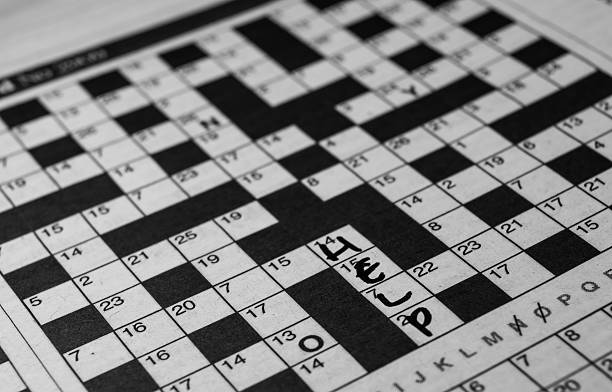The New York Times Crossword is known for its clever wordplay, pop culture references, and occasional nostalgic clues that throw solvers for a loop. One such clue that recently stirred up both curiosity and confusion was: “Fare for Little Miss Muffet NYT.” While it might seem straightforward to some, others found it to be a riddle wrapped in a rhyme. This article offers a full breakdown of the clue, the correct answer, and tips to help crossword lovers crack similar puzzles.
The Clue at a Glance
The clue “Fare for Little Miss Muffet NYT” appeared in a recent edition of the NYT Crossword, and immediately triggered a wave of online searches. Crossword enthusiasts, whether seasoned or just beginning, wanted clarity. What kind of “fare” would be appropriate for Little Miss Muffet?
Before jumping to conclusions, it’s always helpful to recognize that the New York Times Crossword often draws from literary sources, cultural references, and classic rhymes. In this case, the clue hints at a nursery rhyme that many grew up hearing but might have forgotten in detail.
The Answer Revealed: Curds and Whey
The correct answer to “Fare for Little Miss Muffet NYT” is: Curds and Whey
That’s right. This answer comes directly from the classic nursery rhyme:
“Little Miss Muffet sat on a tuffet, Eating her curds and whey…”
This line is not only famous but has also been cleverly reused by the NYT Crossword team as a nostalgic nod to childhood literature. For those unfamiliar with the dish, curds and whey are components of dairy — curds being the coagulated part of milk, and whey being the watery part left behind.
Context and Clue Breakdown
Let’s break down the clue for a better understanding:
- “Fare” in crossword terms typically refers to food or meals.
- “Little Miss Muffet” is a well-known literary figure from a traditional English nursery rhyme.
- Combining both, it becomes evident that the clue is asking what she ate — and that is indeed “curds and whey.”
While some might have initially guessed porridge or another old-fashioned dish, only “curds and whey” matches both the clue and the number of spaces provided in the puzzle grid.
What Are Curds and Whey?
In simple terms:
- Curds are the solid part that forms when milk is coagulated.
- Whey is the liquid that remains after the milk has curdled.
This combination was commonly consumed centuries ago and may still be found in various traditional or artisanal dairy dishes. While it might not sound appetizing to modern palates, curds and whey were once a staple dish — especially in English households.
Common Misinterpretations
Many solvers guessed:
- Oatmeal
- Gruel
- Yogurt
- Porridge
These are all fair guesses, considering they align with old-fashioned, soft food items. However, none of these fit both the clue’s historical reference and its exact wording.
Crossword Clue Strategy Tips
For those who struggled with this puzzle, here are a few strategies to tackle similar clues:
1. Look for Literary or Cultural References
Clues that mention a person’s name or include quotations often reference literature, songs, or historical figures. In this case, “Little Miss Muffet” is an unmistakable literary clue.
2. Understand the Language Used
Words like “fare,” “spread,” or “dish” in crosswords often point to food items. Recognizing these synonyms can quickly help narrow down potential answers.
3. Count the Letters
Always consider the number of boxes available for the answer. This prevents you from guessing incorrectly sized words like “yogurt” when the correct answer is longer or shorter.
4. Trust Your Memory
Sometimes, the answer lies in a faint memory — like a nursery rhyme from childhood. Revisiting those moments can bring surprising clarity.
Also Read: How to Install KB5046616 on Windows Server Without Breaking Things
Other Clues Like This in the NYT Crossword
The New York Times Crossword has a rich history of clues derived from nursery rhymes, classic literature, and folklore. Here are a few that have popped up over time:
- “Jack’s partner in fetching a pail of water” → Jill
- “Baa Baa Black Sheep’s offering” → Wool
- “Where Humpty Dumpty sat” → Wall
These types of clues often appear in Monday and Tuesday puzzles, which tend to be easier and more accessible. Recognizing rhyme-based clues can give solvers a real edge when scanning through the grid.
Why This Clue Stands Out
“Fare for Little Miss Muffet” is a great example of how a seemingly simple clue can challenge memory, vocabulary, and pop culture knowledge all at once. It merges food terminology with literary nostalgia, offering both a smile and a mental workout.
This clue also shows the versatility of the NYT Crossword, where content can range from Shakespearean quotes to nursery rhymes and from contemporary slang to ancient proverbs — all within the same puzzle.
Conclusion
So, to wrap it all up — the answer to Fare for Little Miss Muffet NYT Crossword is Curds and Whey. While it might’ve stumped a few solvers initially, breaking it down with a little literary knowledge and crossword strategy makes everything clear.
Crossword puzzles like these remind us that even the most innocent children’s rhymes can carry hidden meanings and mental challenges when reimagined as clues. It’s these unexpected twists that make solving the NYT Crossword both rewarding and endlessly entertaining.
FAQs
Q: What is “curds and whey” in modern terms?
A: Curds are the solids formed when milk curdles, and whey is the liquid. Think of it like the process of making cheese or yogurt.
Q: Why do crossword clues reference nursery rhymes?
A: Nursery rhymes are common cultural touchstones — almost everyone has heard them, making them great material for clues that evoke nostalgia and challenge recognition.
Q: Is this a common crossword clue?
A: It’s not frequent, but variations on classic rhymes appear from time to time in the NYT Crossword, especially on easier puzzle days.
Q: Are there tools to help solve crossword clues like this?
A: Yes! Crossword solvers, forums, and word pattern tools can all help, but the best tool is often memory and logic.






